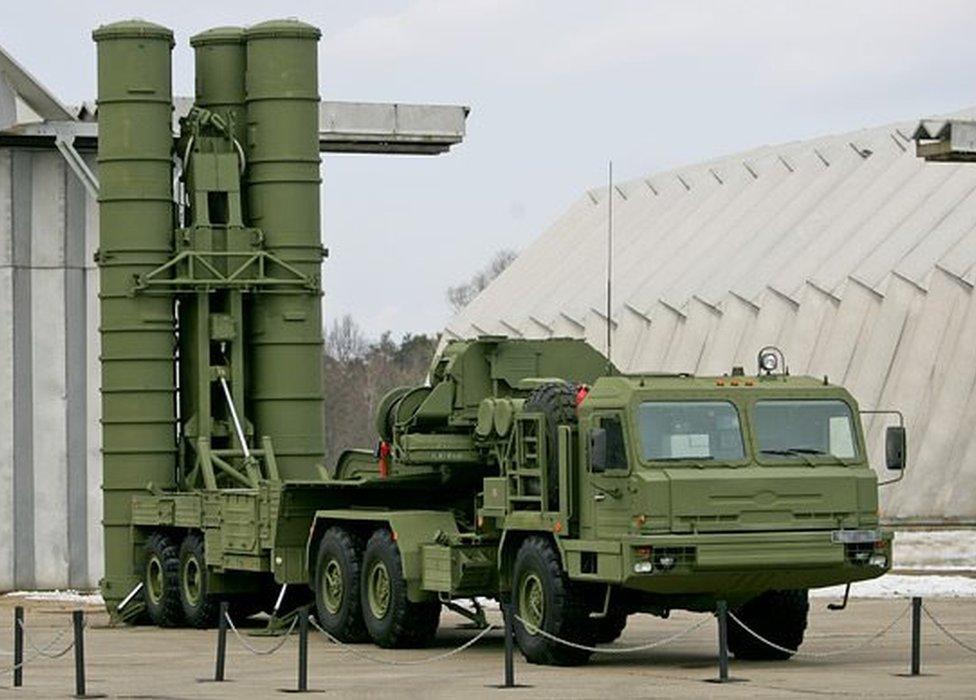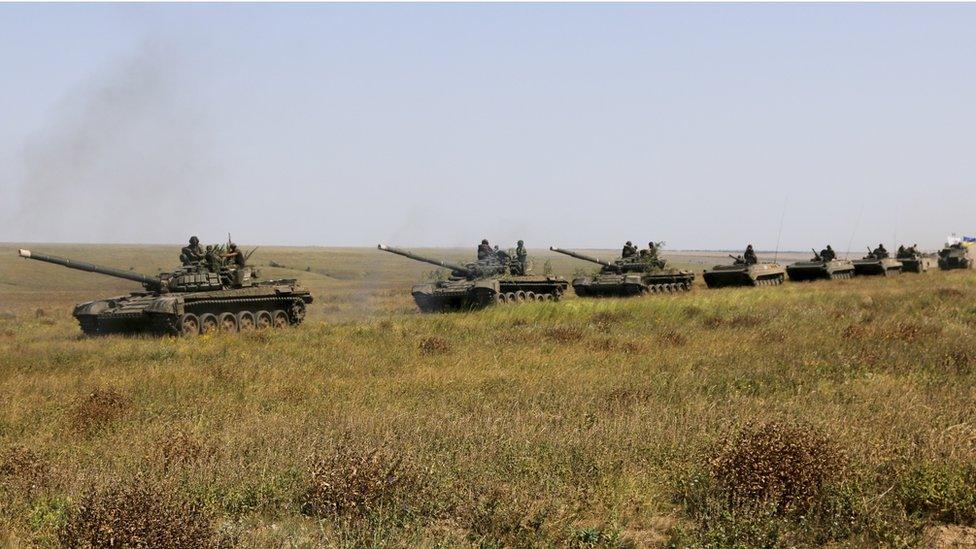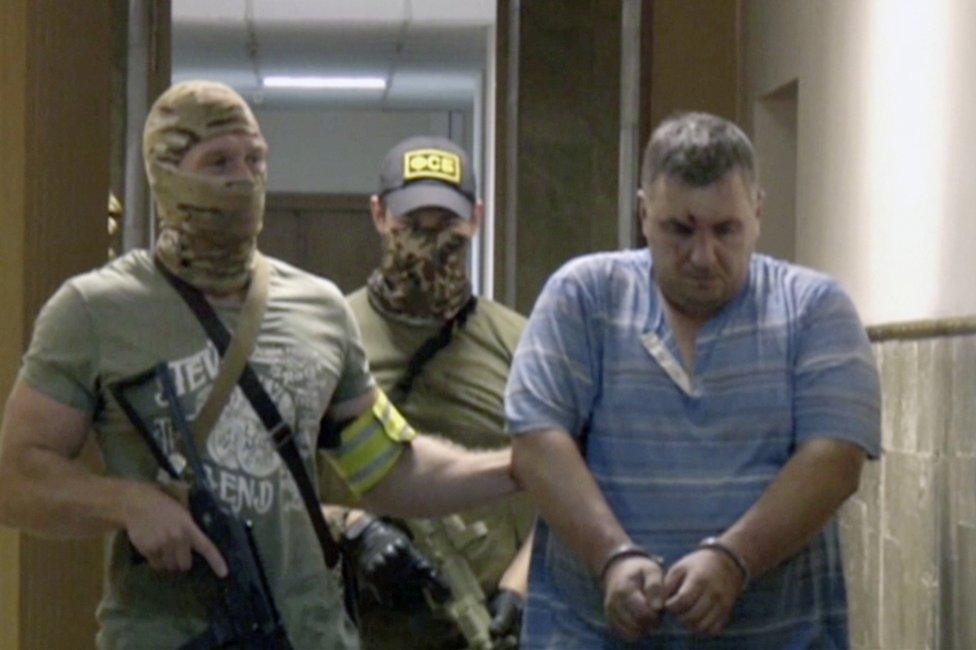Ukraine Crimea: Russia sends new air defence missiles
- Published

The Russian military has announced the delivery of new air defence missiles to Crimea, in a move scheduled before the latest tension with Ukraine.
The S-400 Triumph missile systems were earmarked for troops in Crimea last month, Russian media said at the time.
Moscow also announced exercises in Crimea next week to simulate an attack by weapons of mass destruction (WMD).
Russia, which annexed Crimea from Ukraine in 2014, said this week it had foiled a Ukrainian sabotage mission.
It accused the Ukrainian government in Kiev of trying to send saboteurs into Crimea and reported the deaths of a soldier and a secret police officer in an operation to foil the alleged plot.
Russian Prime Minister Dmitry Medvedev said Moscow might be forced to cut diplomatic ties with Ukraine if the crisis worsened.
Denying the accusations, Ukraine placed its troops on alert along its de facto border with Crimea, and along its front line with Russian-backed rebels holding parts of Donetsk and Luhansk in the east.
A column of Ukrainian tanks could be seen rolling towards Crimea on Friday.

Ukrainian tanks could be seen in the Kherson region, moving towards Crimea
'Syrian air defence'
A statement by Russia's Southern Military District, which incorporates Crimea, said the missiles had been received by an air defence regiment in Crimea.
According to the statement, quoted by Russian news agencies, the missiles were successfully tested on the Kapustin Yar test range in southern Russia.
Russia's Interfax news agency says the missiles are designed to hit airborne targets at a range of up to 400km (249 miles) and ballistic missiles at a range of up to 60km, flying at speeds of up to 4.8km per second.
The missiles are being installed in Crimea to protect Russia's Hmeimim air base in Syria among other things, it adds.
Last November, Russia deployed S-400s at Hmeimim, after Turkey downed a Russian Su-24 bomber.
BBC correspondent Steve Rosenberg was given exclusive access to Russia's airbase in Latakia, Syria
The Russian defence ministry announced (in Russian) exercises in Crimea , externaland the Volgograd region for 16-19 August to simulate the effect of an enemy attack using WMD.
Radioactive, biological and chemical defence troops will be deployed in the manoeuvres, which will involve the use of Solntsepyok rocket systems in Volgograd, as well as an artificial smoke screen to block any surveillance.
Separately, the ministry said (in Russian) it would be sending an additional 40 aircraft, external to the Southern Military District this year.
'Concern and outrage'
Ukraine's envoy to the UN asked Russia on Thursday to prove its allegations, and said some 40,000 Russian troops were massed on the Crimea-Ukraine border.
His Russian counterpart told the UN Security Council of Moscow's "concern and outrage" at the alleged incursions.
Russian state TV broadcast an apparent confession by a man named as Yevhen Panov, saying he was part of a Ukrainian defence ministry force sent into Crimea "to carry out acts of sabotage".
He said the group also included officers of Ukraine's military intelligence.

Yevhen Panov was shown in custody
Reports in Ukraine say Mr Panov is a former volunteer fighter who has more recently been associated with a charitable organisation called Heroes of Ukraine.
Crimea was annexed by Russia after a majority of its mostly ethnic Russian population voted to secede in an unrecognised referendum on self-determination, held under military occupation.

The annexation was relatively bloodless, in sharp contrast to the ferocious fighting which followed in Donetsk and Luhansk.